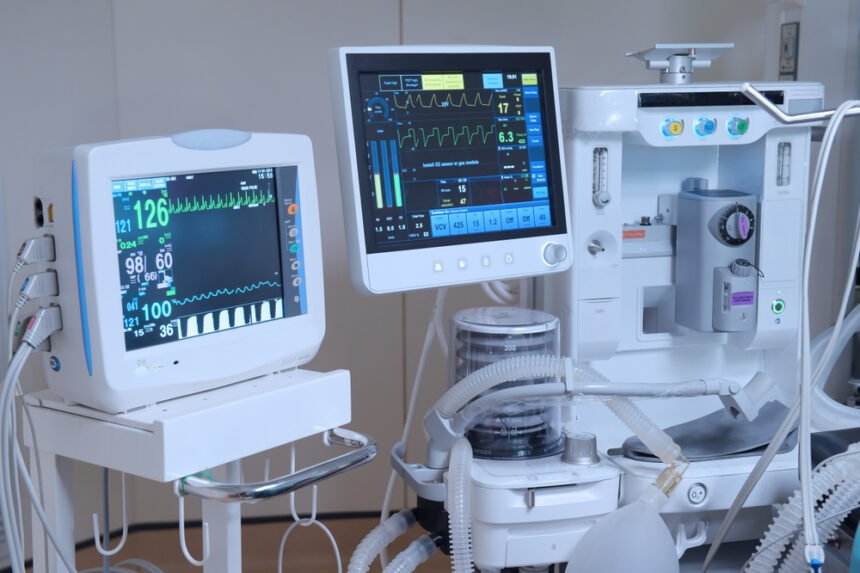It doesn’t take much to know that medical devices – through their revolutionary technological advances – save lives; so, when you create a device for medical professionals to use, you’ll be helping saving lives. But before you can get your device out to the market, you’ll need to know medical device compliance.
Every medical device manufacturer has to comply with regulations, or else the manufacturer will risk their future, and their device won’t see the light of day. Of course, these guidelines and regulations vary from country to country, but the benefits and necessity of these laws are the same throughout.
Whether you’re buying and using medical devices of any kind, designing and producing your own, or you simply have an interest in making sure devices in your life or workplace are giving you the best results, here are four reasons why having medical device compliance matters.
Risk Prevention
Risk prevention is one of the major purposes of regulatory compliance. This allows medical device industries to identify, mitigate, and eliminate the risks at all stages. Industries can learn, as well as educate their workforce, on how to spot the risks and deal with them by following the guidelines that regulatory agencies have.
The processes suggested by the regulatory agencies need to be readily available to the manufacturer, so that they don’t miss a beat in the compliance process.
It’s obvious that if a device isn’t up to scratch and doesn’t meet compliance, then you could be left with a product that’s not accurate and doesn’t given the best results or the desired outcome. For example, if you have a ventilator that’s supposed to output up to 200ml of medicine into an oxygen supply, but it doesn’t meet compliance in terms of accuracy and only gives 100ml, people’s lives could be on the line.
Gain Customer/Investor Trust
Consumers (even stakeholders, employees, and other investors) want a brand that they can trust; but they won’t be sold into using the product, unless they know it has complied with regulatory requirements.
Medical device compliance puts that safeguard and guarantee that people can depend on, which leads to the much-needed stamp of approval. When you have a large brand, this is a loyalty and trust that you can’t compare too. As a small business or producer, it’s imperative that you take time to build up your brand.
If you work as a company that nobody else can trust, you’re not going to be very successful as a business. Achieving the set requirements of compliance means that you’re already meeting the standard that everybody is looking for, and it means people are far more likely to use your products.
Get Regulatory Approval
But how can a medical device prove that it’s safe for consumer, corporate, or medical use?
For starters, the medical device industry is heavily regulated by regulatory bodies like the FDA. These regulatory bodies have compliance regulations in place to make sure medical devices are safe to use, and they promote quality manufacturing. In their launch of the Case for Quality program in 2011, the FDA wanted manufacturers (including medical device manufacturers) to produce high-quality products.
In most cases, you’ll need to comply with not only the FDA (which is based in the US), but also the ISO (which is for international use). No matter what, your device will need that stamp of approval – no exceptions.
As we said in the introduction, this can vary from country to country, so you need to make sure you’re looking for the most up-to-date information on your official government website, or even using a third-party consultant or advisor firm that can help give you the information and legal requirements that’s relevant to you and your products.
Better Preparation For Audits
No one knows when they will be audited. In fact, the FDA wants manufacturers, especially those who make medical devices, to have quality audits every 12 months or less. So, your best bet is to be ready for any medical device audit, by meeting compliance regulations and having a well-documented traceability matrix.
But what happens if you don’t pass an audit?
“Penalties tend to be swift, if you don’t pass an audit,” Rose adds. “First, you’ll need to fill out a 483 form for the FDA, responding to the failed audit from the regulatory body. Then, not only will you be forced to pay fines, but this will ultimately damage your reputation as a manufacturer.”
The more prepared and compliant you are right off the bat, the less you’ll have to worry about audits because you know you’re already operating within the boundaries of the law, and an audit isn’t going to shock you with any unforeseen surprises.
So, How Do You Achieve Medical Device Compliance?
Now that you know why medical device compliance matters in this industry, how do you actually comply with regulations?
First, you’ll need to be able to trace everything from requirements to test cases. Regulatory agencies are dead-set in finding out whether or not you’re following their guidelines. In fact, these agencies want you to follow their rules to a tee.
That’s where the traceability matrix comes in – this helps you prove to regulatory agencies that you’re complying with their rules. To create a traceability matrix, you can use Microsoft Excel to record your compliance, rather than use word processing programs like Word to write down everything.
Or, you can start today. Start detecting errors early and testing your devices every so often, so that not you save on costs, but you would also be certain that your product is meeting the requirements during the development stage.
Conclusion
Regulatory agencies like the FDA, the EMA, etc. are in place to make sure that the pharmaceutical, medical device and healthcare industries deliver the best products to consumers. Yes, compliance may seem like hard and or too much work, in at the end of the day, people rely on products, especially if they see them as lifesaving.
Now, this guarantee of safety will not be achieved, unless medical device manufacturers make products that adhere to the regulatory compliance requirements set out by said regulatory agencies.









